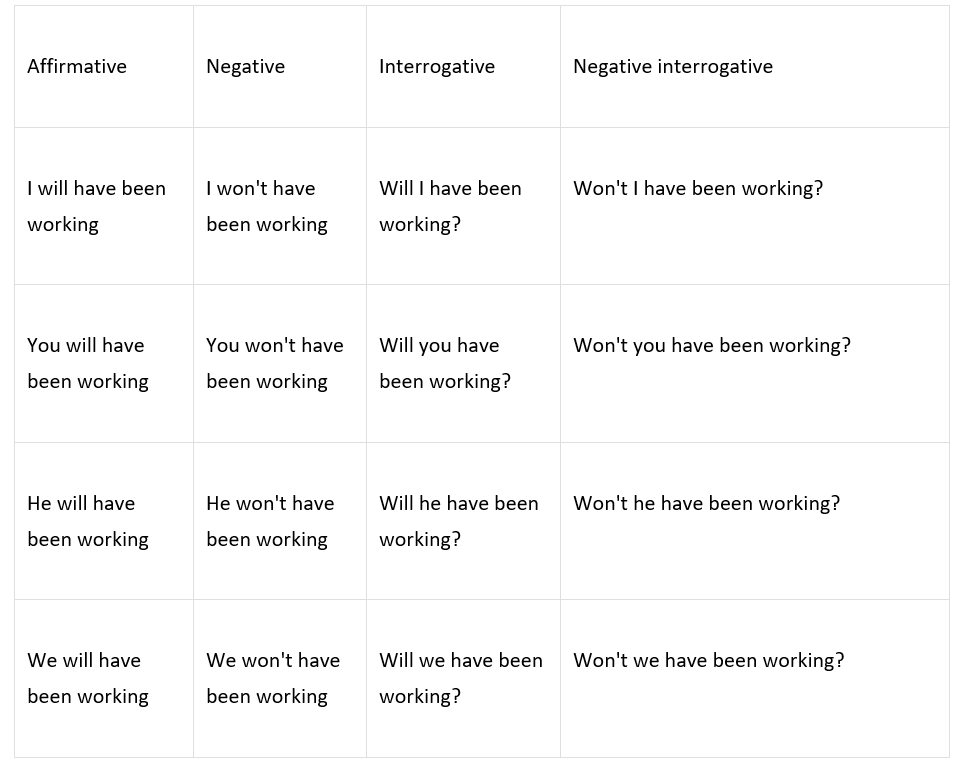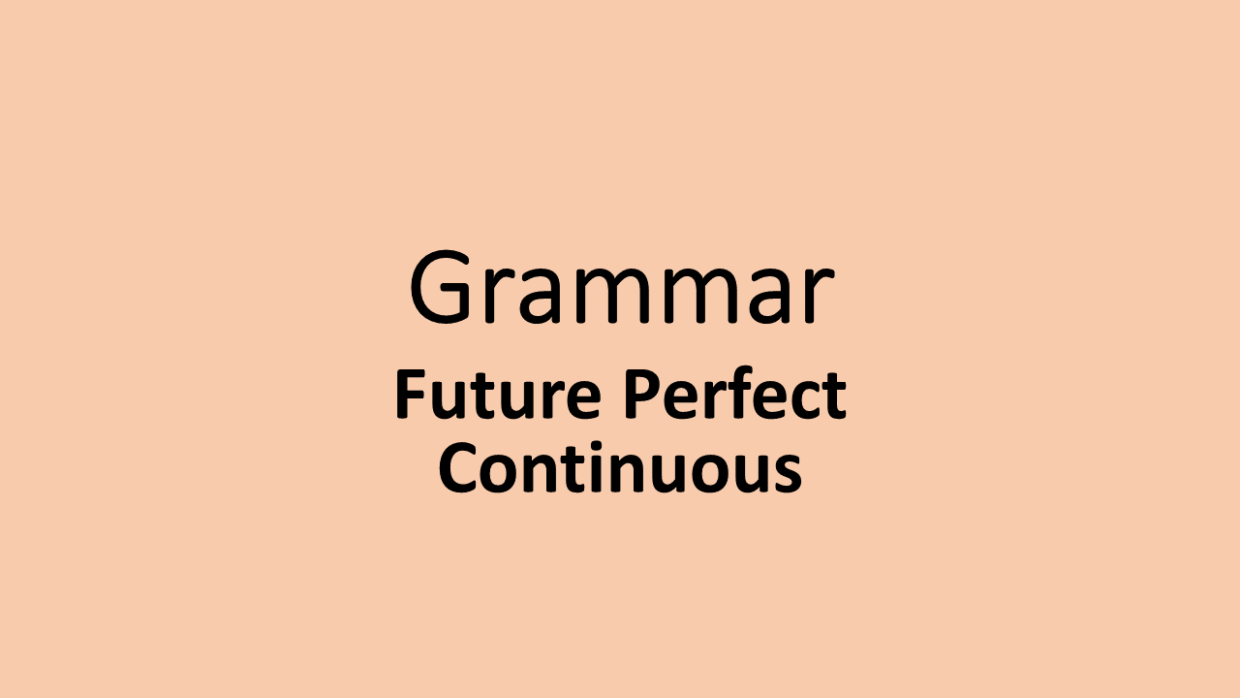The future perfect continuous is a verb tense that describes actions that start in the past, present, or future and that will continue up until a point in the future. When describing an action in the future perfect continuous tense, we are projecting ourselves forward in time and looking back at the duration of that activity.

Forming Future Perfect Continuous sentences
The future perfect continuous is formed by using will + have + been + the verb’s present participle (verb root + -ing).


Contraction with Future Perfect Continuous
When we speak of write informally, we often contract the subject and WILL:

- I’ll have been waiting here for five hours.
- He’ll have been watching TV for hours.
In negative sentences, we may contract with won’t:

- He won’t have been driving, will he?
- They won’t have been waiting for long.
Using Future Perfect Continuous
USE 1 Duration Before Something in the Future
Future perfect continuous can be used to show that something will continue up until a particular event or time in the future.
Examples:
- He will have been working for over an hour by the time Elisa arrives.
- Casey will have been teaching at the university for more than five years by the time she leaves for Venezuela.
- How long will you have been studying when you graduate?
- They are going to have been driving for over two days when they get to Barcelona.
- When you finish your degree, will you have been living in South Africa for over a year?
USE 2 Cause of Something in the Future
We can use the future perfect continuous before another action in the future to show cause and effect.
Examples:
- Andrea will be tired when she gets home because she will have been running for more than an hour.
- Julia’s English will be perfect when she returns home because she is going to have been studying English in Australia for over two years.

